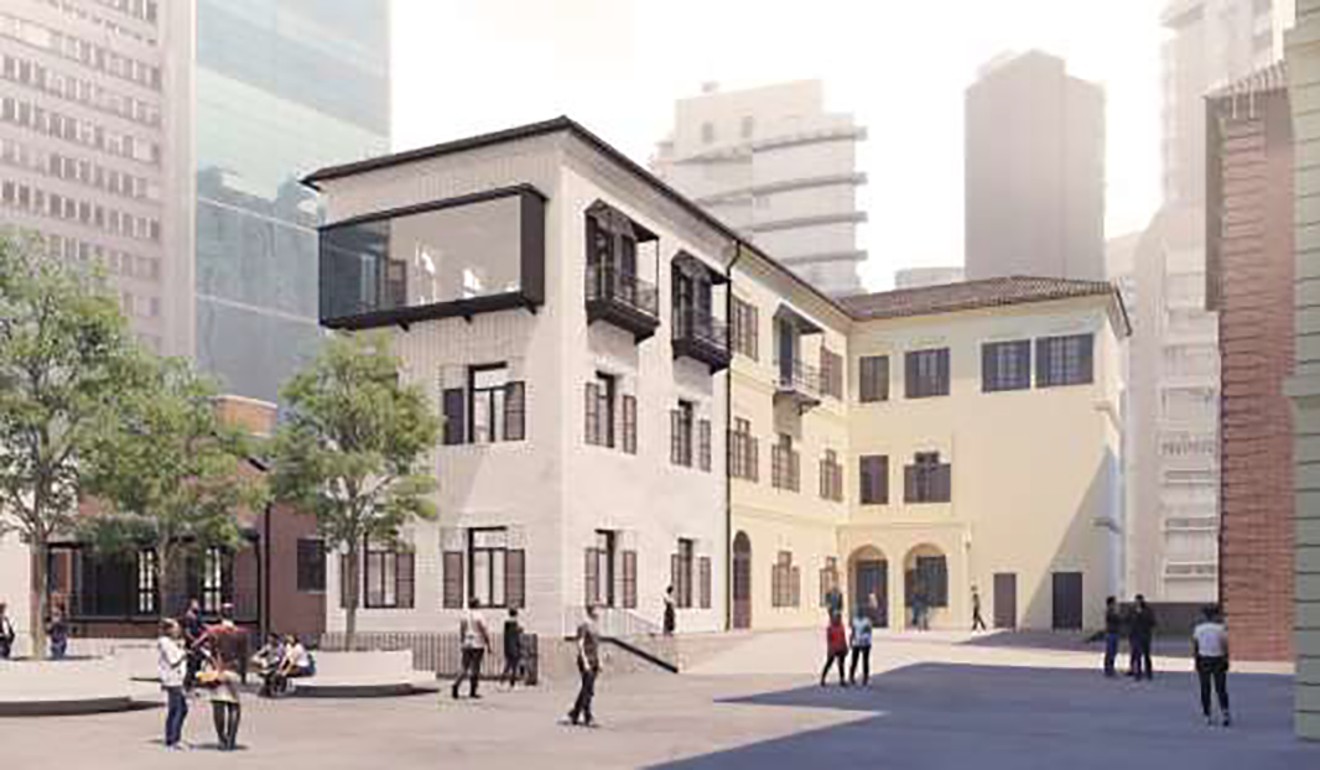
Hong Kong Jockey Club gets qualified approval for plans to rebuild police block at historic Tai Kwun site
Government’s heritage advisers welcome proposal for collapsed building, but not everyone is happy with the design
Hong Kong Jockey Club’s proposal to reconstruct a partially collapsed block at the historic Tai Kwun site was welcomed by the government’s heritage advisers on Thursday, although not everyone is happy with the design.
The club, which is responsible for the restoration, said it hopes to submit its final design to the government for approval soon, and expects to face challenges when it comes to rebuilding.
Block 4, one of the 16 historic buildings in the former Central Police Station compound, will be partially rebuilt with modern materials, while salvaged materials, including granite from the damaged stairways, will be reused for the new building.

“The board also saw the efforts of it [the club] to respect the building’s history as it tried to salvage the damaged construction materials,” said Andrew Lam Siu-lo, chairman of the Antiquities Advisory Board.
However, board members have expressed concern over the proposed design, including the colour of the wall, and the location of the balcony.
Most concerns centre on the balcony facing the Parade Ground. According to the club, the second-floor balcony, which was damaged many years ago, will be rebuilt with new materials to increase the transparency of the building.
Some board members proposed relocating the balcony to the ground floor instead, while some questioned if its inclusion was necessary.
Block 4, which housed quarters for married inspectors, partially collapsed in 2016. The structure that remains is now kept safe under protective wrapping and propping.
Central Police Station restoration: how city’s most ambitious heritage project overcame the odds
Cheung Leong, the club’s executive director of charities and community of the club, said after the board meeting that members appeared to have agreed with the overall design and style.
“There were one or two very specific comments on the particular balcony. I think that could be further developed through next stage in detailed design,” he said, adding the proposal had already gone through several rounds of development.
Watch: Jockey Club fund helps musicians realise dreams
Cheung said the next step was to get consent for the final design from the head of the Development Bureau.
“After approval, we will deal with tender plan and valuation,” he said.
He noted that the construction site would present a challenge because the space is very small. The construction materials will need to be transported from elsewhere, instead of being kept nearby.
Thousands of visitors flock to opening of Tai Kwun Centre for Heritage and Arts
Working hours might also be limited because of the need to start construction while the public visited adjacent buildings.
“We will try our best not to affect the public,” he said, adding materials of the stairways such as granite, bricks will only be used for decoration, and not for supporting the structure.
The building partially collapsed on May 29, 2016 when workers were restoring the historic building as part of the HK$3.8 billion (US$484 million) revitalisation project run by the Jockey Club.
An independent investigation commissioned by the club later found the collapse could have been avoided if holes had not been made in a building wall.
